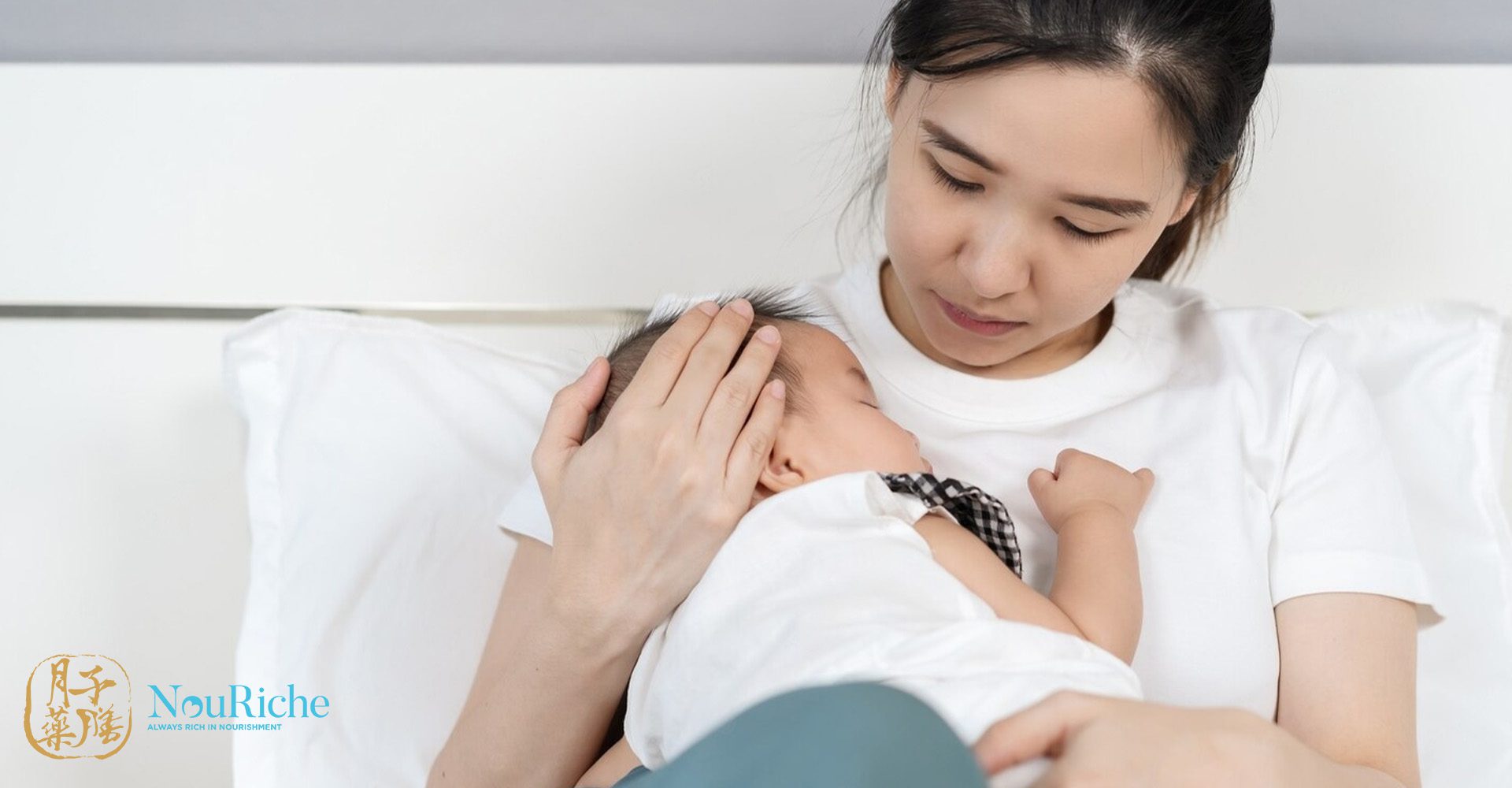Bringing a new life into the world can be one of life’s most happy and fulfilling moments. Yet, new parents should be aware that the postpartum period can bring a range of feelings that can seem overwhelming. The emotional ups and downs that occur during this period are normal, and it is critical to understand how to navigate them in order to achieve the best possible outcomes for both the new parent and the newborn. According to statistics states approximately 1 in 10 women will experience postpartum depression after giving birth. The studies also estimate that there were around 50% of mothers suffering from postpartum depression are not diagnosed by professional healthcare. In this article, we’ll look at the emotional changes that new parents may go through during the postpartum period and give ways for dealing with them.
Symptoms after childbirth
While postpartum emotional changes are common and normal, they can be overwhelming and challenging for some. Most new mums will experience “baby blues” after giving birth with usually includes anxiety, mood swings, crying spells and difficulties of sleep. Normally baby blues will appear after 2-3 days after giving birth and may last up to 2 weeks. The heavier symptoms of “baby blues” are known as postpartum depression and usually, this condition will exhibit mostly in new mums. While it is vital to emphasize that postpartum depression is not a character flaw or a weakness, it is important to accept it as a condition following childbirth.
- Baby Blues
The baby blues are a common emotional change experienced by new parents. Symptoms can include mood swings, tearfulness, anxiety, and difficulty sleeping. These symptoms typically begin within the first few days after giving birth and can last up to two weeks. - Postpartum Psychosis
Is a complex and rare condition that affects different postpartum women in different ways such as, feeling confused and lost, having obsessive thoughts, hallucinating, being unable to sleep, having unsettling feelings, and being paranoid. Postpartum psychosis can have serious consequences for both the mother and the baby. It can impair the mother’s ability to bond with her baby, care for herself and her family, and function normally. It can also increase the risk of suicide or infanticide - Postpartum Depression in the other parent
According to research, new fathers can also suffer from postpartum depression. They may experience sadness, fatigue, overwhelm, anxiety, or changes in their typical eating and sleeping patterns. These are the same symptoms that postpartum depression women experience.
Fathers who are young, have a history of depression, have emotional conflict, or are financially struggling are the most vulnerable to postpartum depression. Postpartum depression in fathers, also known as paternal postpartum depression, can have the same harmful effect on partner relationships and child development as it does on mothers.

Coping Strategies for Postpartum Emotions
There are coping strategies you can employ to help you through this transition and make your postpartum experience as smooth and enjoyable as possible.
- Self-Care and Self-Compassion
One of the most important things you can do is to practice self-care and self-compassion. This means taking time for yourself, even if it’s just a few minutes a day, to do something that makes you feel good. Whether it’s taking a warm bath, reading a book, or going for a walk, taking care of yourself is crucial for your mental and emotional well-being. - Seeking Support
Another helpful coping strategy is seeking support. This can be from your partner, family members, or friends. Talking about your feelings and experiences with someone you trust can make a world of difference. You may also want to consider joining a support group for new moms in your community or online. - Maintaining Healthy Relationships
Is also important during this time. Communicate with your partner and loved ones openly and honestly about how you’re feeling and what you need from them. Surround yourself with people who uplift and support you, and try to limit contact with those who bring negativity into your life. - Seek Help from other family members
There is no shame in seeking help or taking care of yourself during this time. You are a strong and capable mom, and with the right coping strategies in place, you can enjoy this special time in your life to the fullest. - Getting Professional Help
If you find that your postpartum emotions are persistent and interfere with your daily life, it’s important to seek professional help. This can come in the form of therapy or counselling, and can help you work through any issues you may be experiencing. - Getting assistance with your maternity meal planning
Proper nutrition is essential for both you and your baby, but finding the time and energy to prepare healthy meals can be challenging. Consider reaching out to a nutritionist or dietician who can help you plan and prepare nutritious meals for you and your little one.

Myth and Misconceptions About Postpartum Emotional Challenge
Postpartum emotional challenge, also known as postpartum depression (PPD), is a serious mental health condition that affects some parents after the birth of a baby. It can cause feelings of sadness, anxiety, guilt, hopelessness, and difficulty bonding with the baby. There are many myths and misconceptions about PPD that can prevent people from seeking help or getting proper treatment. Here are some of them:
- Myth: PPD only affects pregnant individuals.
Fact: PPD can affect anyone who has a baby, regardless of gender identity or biological role. About 1 in 9 mothers and 1 in 10 fathers experience PPD - Myth: PPD goes away on its own.
Fact: PPD is not a normal part of parenthood and it does not just disappear without treatment. PPD can last for months or even years if left untreated. - Myth: PPD is a sign of bad parenting or weakness.
Fact: PPD is not caused by anything that parents do or don’t do. It is not a reflection of their character or ability to care for their baby. PPD is a medical condition that can affect anyone, regardless of age, education, income, culture, or personality. - Myth: People with PPD may harm their babies.
Fact: Most people with PPD do not have thoughts or intentions of harming their baby. However, some may experience intrusive thoughts that are scary or disturbing but do not reflect their true feelings or desires. These thoughts are common and do not mean that they will act on them. If someone has thoughts of harming themselves or their baby, they should seek immediate help from a doctor or call 911.
In conclusion, navigating the emotional ups and downs of postpartum can be challenging, but it’s important to remember that you are not alone in this experience. Practising self-care and self-compassion, seeking support, maintaining healthy relationships, getting professional help, and asking for assistance with maternity meal planning are all helpful coping strategies that can make this transition smoother and more enjoyable.
As a new mom, you may feel overwhelmed at times, but it’s important to prioritize your mental and emotional well-being. Remember that taking care of yourself is not selfish, it’s necessary. You are a strong and capable mom, and with the right support and coping strategies, you can navigate the postpartum period with grace and ease.
Don’t be afraid to reach out for help when you need it, and don’t hesitate to prioritize your own needs alongside those of your new baby. With time, patience, and perseverance, you will find your footing and thrive as a new mom. Congratulations on this exciting new chapter in your life, and know that you’ve got this!
Final words
We hope this article has provided some insight on how to Navigating Emotional Ups and Downs of Postpartum. If you wish to try out our confinement meals do speak with us today to find out more about our confinement food packages!




